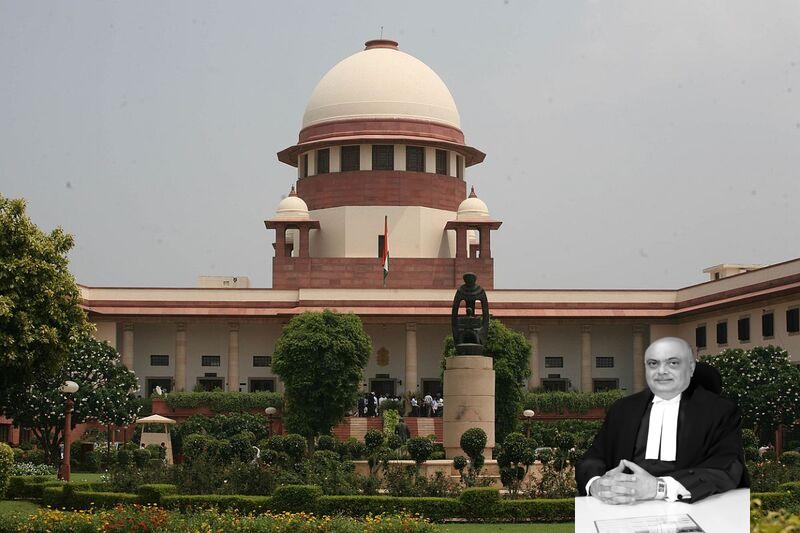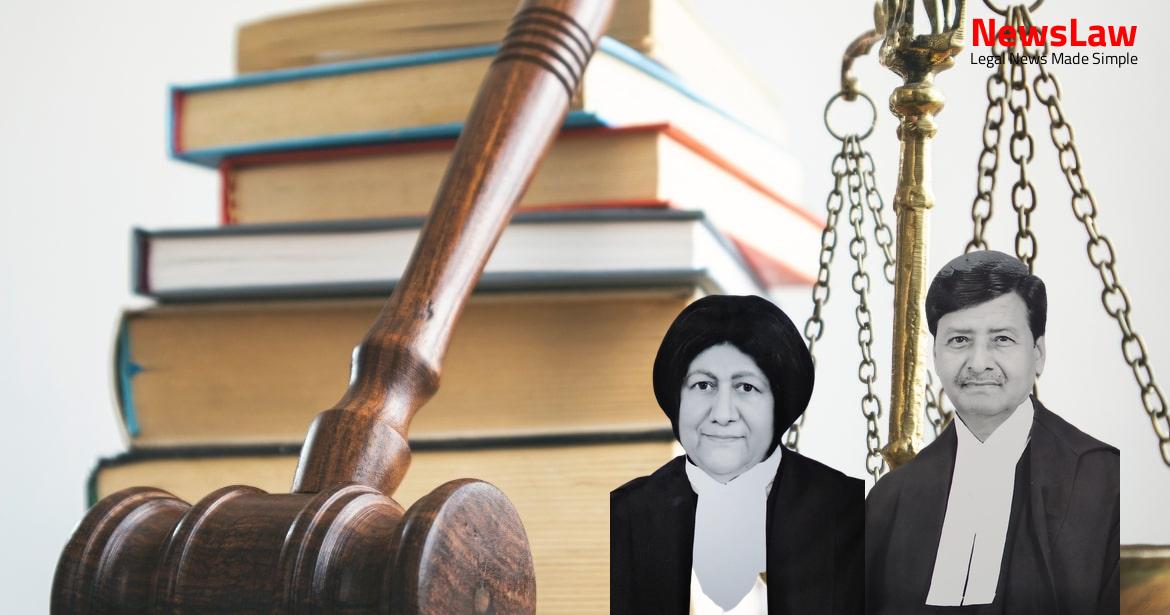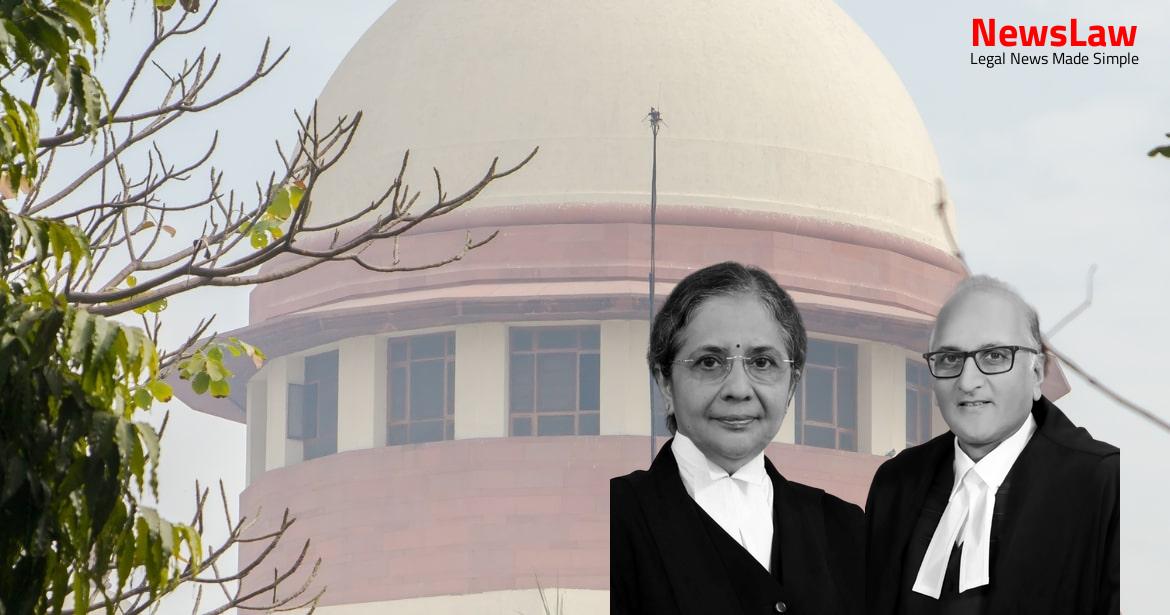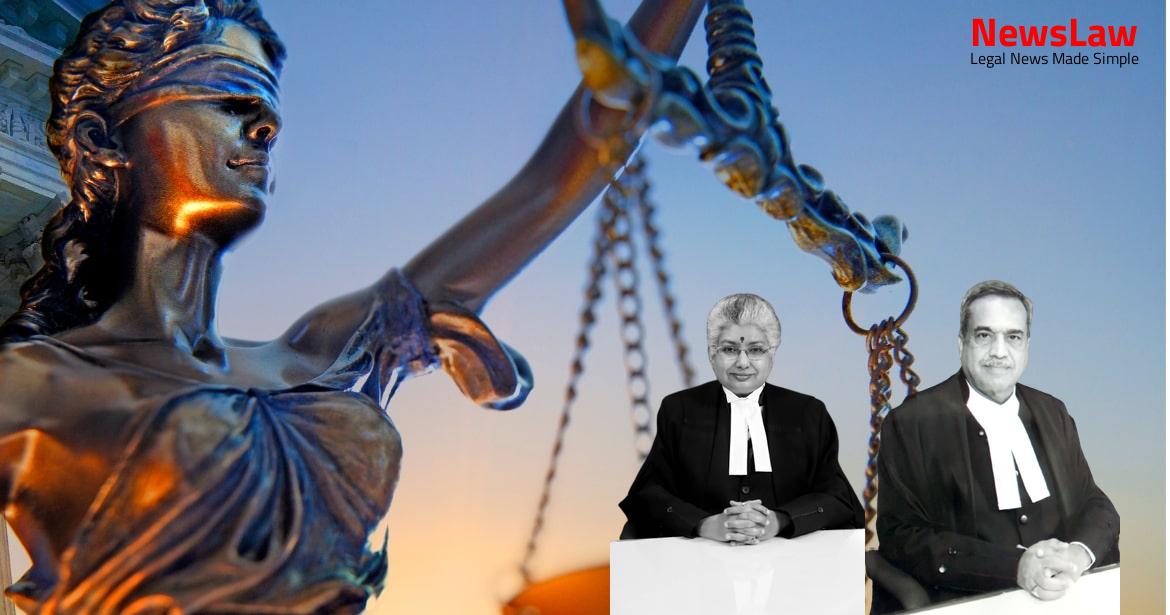This appeal is directed against the Final Judgment and Order dated 02.08.2017 (hereinafter referred to as the “Impugned Judgment”) passed by 2 the Lucknow Bench of the High Court of Judicature at Allahabad (hereinafter referred to as the “High Court”) in Case U/S 482/378/407
Cr.P.C. Learned counsel for the appellants submitted that R2, who claimed to be the tenant of the property in question, had on 31.05.2011 filed Regular Suit No.104/2011 for permanent injunction before the Civil Judge (Senior Division) South, Lucknow which was based on a so-called ‘Memorandum of Agreement of Tenancy’ dated 24.11.2005, in which 4 the present symbol of the Indian National Rupee i.e., , has been shown but the said symbol came into being only in the year 2010 and thus, could not have been reflected in a ‘Memorandum’ of the year 2005, which clearly exposes the falsity of the claim. It was submitted that R2 also filed an application under Section 144, CrPC before the Additional City 6 Magistrate (First), Lucknow, registered as Suit No.01 of 2012 against the appellants which, by Order dated 09.08.2012, was rejected as not maintainable. Learned counsel submitted that the Trial Court, upon the Charge Sheet submitted by the police in the FIR, took cognizance on 07.08.2011, against which the appellants moved the High Court under Section 482, CrPC, in Case No U/S 482/378/407 No – 2413 of 7 2012 which was disposed of vide order dated 10.04.2014 with the direction that the appellants may file application for discharge before the Court concerned.
Learned counsel submitted that despite there being sufficient material for discharge, the Trial Court by order dated 02.06.2017 rejected the application on vague grounds and thus, the appellants had to move the High Court under Section 482, CrPC in Case U/S 482/378/407 Learned counsel pointed out that innocence of the appellants would be further established by the fact that despite the initial FIR having been 9 registered under Sections 448, 454 and 380, IPC, the police did not find any case under Sections 454 and 380, IPC, to which R2 neither objected nor filed any protest.
Furthermore, R2 has based his entire claim of tenancy on a document which has been, prima facie, found to be forged and fabricated, for which the Court concerned has directed lodging of a criminal case.
We are of the firm view that A2 being the 11 undisputed landlord, the criminal case filed by R2, in the facts and circumstances supra, amounts to clear abuse of the process of the Court. Under Section 238, when in a warrant case, instituted on a 13 police report, the accused appears or is brought before the Magistrate, the Magistrate has to satisfy himself that he has been supplied the necessary documents like the police report, FIR, statements recorded under sub-section (3) of Section 161 CrPC of all the witnesses proposed to be examined by the prosecution, as also the confessions and statements recorded under Section 164 and any other documents which have been forwarded by the prosecuting agency to the court. It is then that the charge is framed under Section 240 CrPC and the trial proceeds for recording the evidence. There had to be an opportunity for the prosecution to lead evidence under Section 244(1) CrPC or to summon its witnesses under Section 244(2)
CrPC.This did not happen and instead, the accused proceeded to file an application under Section 245(2) CrPC on the ground that the charge was groundless. The Magistrate has the power to discharge the accused under Section 245(2) CrPC at any previous stage i.e.
Thomas, as the learned Judge then was, accepted the proposition that the Magistrate has the power under Section 245(2) CrPC to discharge the accused at any previous stage. We are convinced that under Section 245(2)
CrPC the Magistrate can discharge the accused at any previous stage
i.e. If on such consideration, examination and hearing the Magistrate finds the charge groundless he has to discharge the accused in terms of Section 239 CrPC; conversely, if he finds that there is ground for presuming that the accused has committed an offence triable by him he has to frame a charge in terms of Section 240 CrPC. To put it differently, once charges are framed under Section 240 CrPC the High Court in its revisional jurisdiction would not be justified in relying upon documents other than those referred to in Sections 239 and 240 CrPC; nor would it be justified in invoking its inherent jurisdiction under Section 482 CrPC to quash the same except in those rare cases where forensic exigencies and formidable compulsions justify such a course. Apart from the infirmity in the approach of the High Court in dealing with the matter which we have already noticed, we further find that instead of adverting to and confining its attention to the documents referred to in Sections 239 and 240 CrPC the High Court has dealt with the rival contentions of the parties raised through their respective affidavits at length and on a threadbare discussion thereof passed the impugned order. If Paragraph 8 of Minakshi Bala ( supra ) is accepted as it is, the necessary concomitant would be that despite examining the matter in detail, a Court would find its wings clipped to intercede. The principles holding the field under Sections 227 and 228, CrPC are well- settled, courtesy, inter alia, State of Bihar v Ramesh Singh, (1977) 4 SCC 39 ; Union of India v Prafulla K Samal, (1979) 3 SCC 4 ; Stree Atyachar 20 Virodhi Parishad v Dilip N Chordia, (1989) 1 SCC 715 ; Niranjan Singh Karam Singh Punjabi v Jitendra B Bijjaya, (1990) 4 SCC 76 ; Dilawar B Kurane v State of Maharashtra, (2002) 2 SCC 135 ; Chitresh K Chopra v State (Government of NCT of Delhi), (2009) 16 SCC 605 ; Amit Kapoor v Ramesh Chander, (2012) 9 SCC 460 ; Dinesh Tiwari v State of Uttar Pradesh, (2014) 13 SCC 137 ; Dipakbhai Jagdish Patel v State of Gujarat, (2019) 16 SCC 547 ; and State (NCT of Delhi) v Shiv Charan Bansal, (2020) 2 SCC 290.
Thus, on a consideration of the authorities mentioned above, the following principles emerge: (1) That the Judge while considering the question of framing the charges under Section 227 of the Code has the undoubted power to sift and weigh the evidence for the limited purpose of finding out whether or not a prima facie case against the accused has been made out. (4) That in exercising his jurisdiction under Section 227 of the Code the Judge which under the present Code is a senior and experienced court cannot act merely as a Post Office or a mouthpiece of the prosecution, but has to consider the broad probabilities of the case, the total effect of the evidence and the documents produced before the Court, any basic infirmities appearing in the case and so on.
If a view gives rise to suspicion, as opposed to grave suspicion, the Court concerned is empowered to discharge the accused, as pointed out in Sajjan Kumar v Central Bureau of Investigation, (2010) 9 SCC 368. If there is no sufficient ground for proceeding against the accused necessarily, the accused would be discharged, but if the court is of the opinion, after such consideration of the material there are grounds for presuming that accused has committed the offence which is triable, then necessarily charge has to be framed.
If the accused is able to demonstrate from the charge-sheet material at the stage of framing the charge which might drastically affect the very sustainability of the case, it is unfair to suggest that such material should not be considered or ignored by the court at that stage.
Case Title: VISHNU KUMAR SHUKLA Vs. THE STATE OF UTTAR PRADESH
Case Number: Crl.A. No.-003618-003618 / 2023



